Reconstruction
The cinema was destroyed by a fire in 1998. The site was left vacant for 8 years. [5]
A new cineplex was opened, in 2008. Azadi Cinema Complex now has five screens, one with 600 seats and others with 200 each. [6] The complex is one of the major cineplexes in Tehran, with the one at Mellat Park. [7]
The building now hosts a Cinematheque and was described in the Tehran Times as follows: "It is one of the landmarks of Tehran, marking the west entrance to the city, and is part of the Azadi Cultural and Artistic Complex, which also includes an underground museum." [8]
Jaam-e-Jam was a Persian-language television channel based in Los Angeles featuring content from Iranian immigrants, active from the early 1980s until 2017.
Yassamin Maleknasr is an Iranian filmmaker and actress.
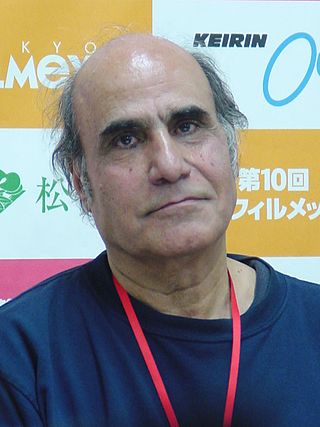
Amir Naderi is an Iranian film director, screenwriter, and photographer. He is best known for The Runner and Vegas: Based on a True Story.
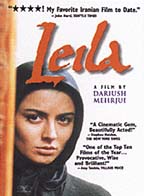
Leila is a 1997 Iranian film directed by Dariush Mehrjui.

Ebrahim Hatamikia is an Iranian film director, screenwriter, cinematographer and actor. Hatamikia is known for films depicting the Iran–Iraq War's impact on Iran. His films are considered some of the best ever made in the Iranian war cinema and most notable for their attention to social changes brought about by the war. Also, he is best-known for his explorations of the trauma by the war; both on returning soldiers and those who await them, unable to mourn effectively without knowing the fate of their loved ones.

Marzieh Meshkini is an Iranian cinematographer, film director and writer. She is married to filmmaker Mohsen Makhmalbaf, who wrote the script for her debut film The Day I Became a Woman.

The Celebration of the 2,500th Anniversary of the Founding of the Persian Empire was a national event in Iran that consisted of an elaborate set of grand festivities during October 1971 to celebrate the founding of the ancient Achaemenid Empire by Cyrus the Great. The intent of the celebration was to highlight Iran's ancient civilization and history as well as to showcase its contemporary advances under Shah Mohammad Reza Pahlavi. The celebrations highlighted pre-Islamic origins of the country while promoting Cyrus the Great as a national hero. Note that the celebration was actually 2,520 years after the founding of the Achaemenid Empire, as it was founded in 550 BC.

Farshid Mesghali is an Iranian animator, graphic designer, illustrator, painter, sculptor and printmaker who has lived in the United States since 1986. He received the international Hans Christian Andersen Medal in 1974 for his "lasting contribution" as a children's illustrator.

Ganj-e Qarun is a 1965 Iranian film directed by Siamak Yasemi and starring Mohammad Ali Fardin, Forouzan, Arman, and Taghi Zohouri.
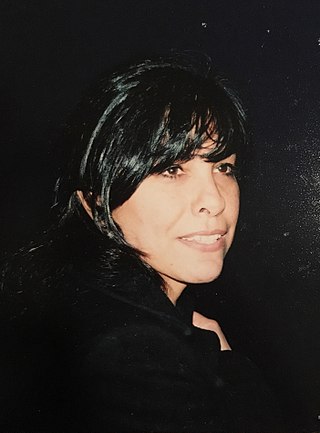
Negar Mottahedeh is a cultural critic and film theorist specializing in interdisciplinary and feminist contributions to the fields of Middle Eastern Studies and Film Studies.
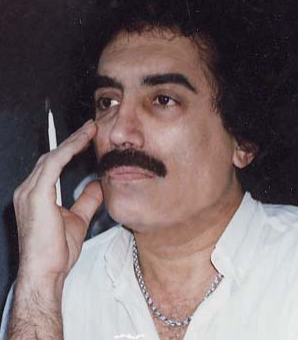
Ali Limonadi is an Iranian-born American film and television director, television producer, and journalist. He was the founder of IRTV in Los Angeles, the first television representation of the Iranian diaspora in the United States.
Sardar Saker was an Indian director who made several films in Iran. He owned his own film studio in Iran, Kuh-e Nur. He introduced Indian-style film narrative elements into Iranian films.
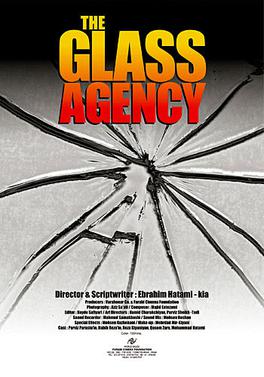
The Glass Agency is a 1998 Iranian drama film written and directed by Ebrahim Hatamikia, and one of his most successful works and one of the most popular and controversial films of post-revolutionary Iranian cinema.

Hamid Naficy is an Iranian-born American filmmaker, writer, scholar, and educator. He is the Hamad Bin Khalifa Al-Thani Professor in Communication at Northwestern University in the department of Radio/Film/Television, an affiliate faculty member in the Department of Art History, and a core member of the Middle East and North African Studies Program.
Ardashes Badmagrian or Artashes Patmgrian (1863–1928) was an Iranian Armenian Movie Theater owner. Badmagarian had worked at Pathé in Paris at the turn of the century and had brought back to Persia the cinematograph, the phonograph, and the bicycle.

The culture of Tehran concerns the arts, music, museums, festivals, many Persian entertainments and sports activities in Tehran, the capital city of Iran. Iranian festivals are held throughout the year by the people of Tehran, which can be attractive to tourists.

Yahya Nasiri, commonly known as Yahya Nouri, was an Iranian Shia cleric and missionary activist.
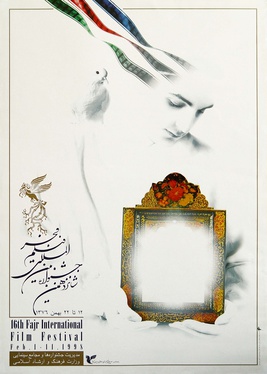
The 16th Fajr International Film Festival held 1–11 February 1998 in Tehran, Iran.
Jalal Pishvaian was an Iranian actor. He acted in over 80 films.
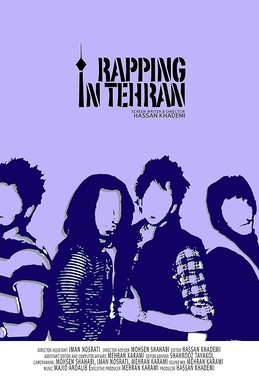
Rapping in Tehran is a 2009 documentary film directed by Hassan Khademi. The film depicts the situation of underground music in Iran. The film has participated in several international film festivals including Dok Leipzig, ZagrebDox, United Nations Association Film Festival (UNAFF), Copenhagen International Documentary Film Festival and Peace on Earth Film Festival (POEFF). It was nominated for Best Screen Play at the World Music & Independent Film Festival (2010) and won the Special Jury Award from the Chicago International Movies and Music Festival (2010).
This page is based on this
Wikipedia article Text is available under the
CC BY-SA 4.0 license; additional terms may apply.
Images, videos and audio are available under their respective licenses.






















